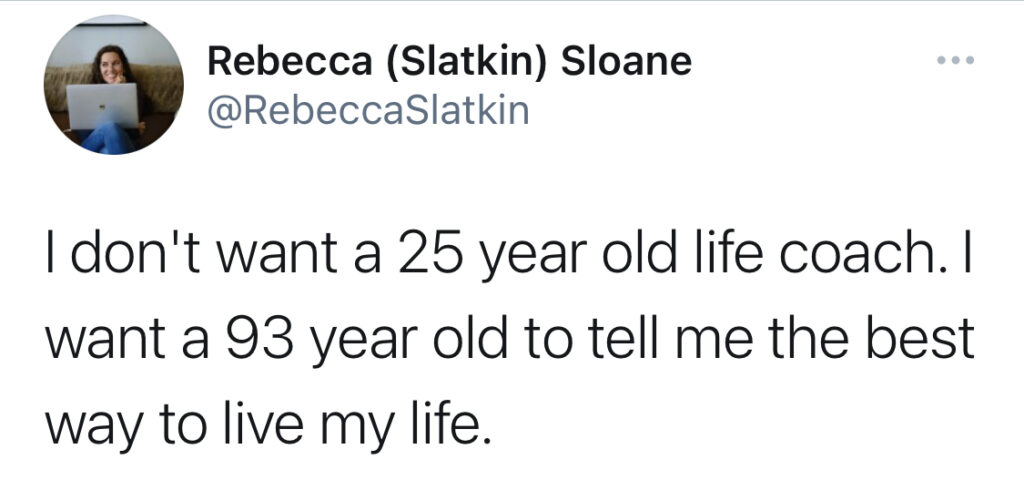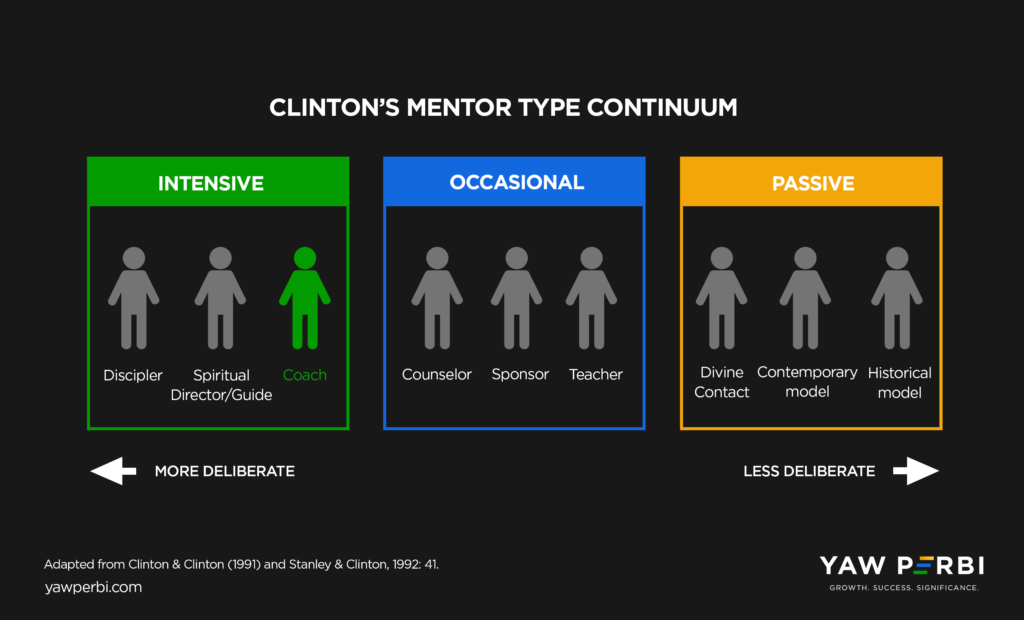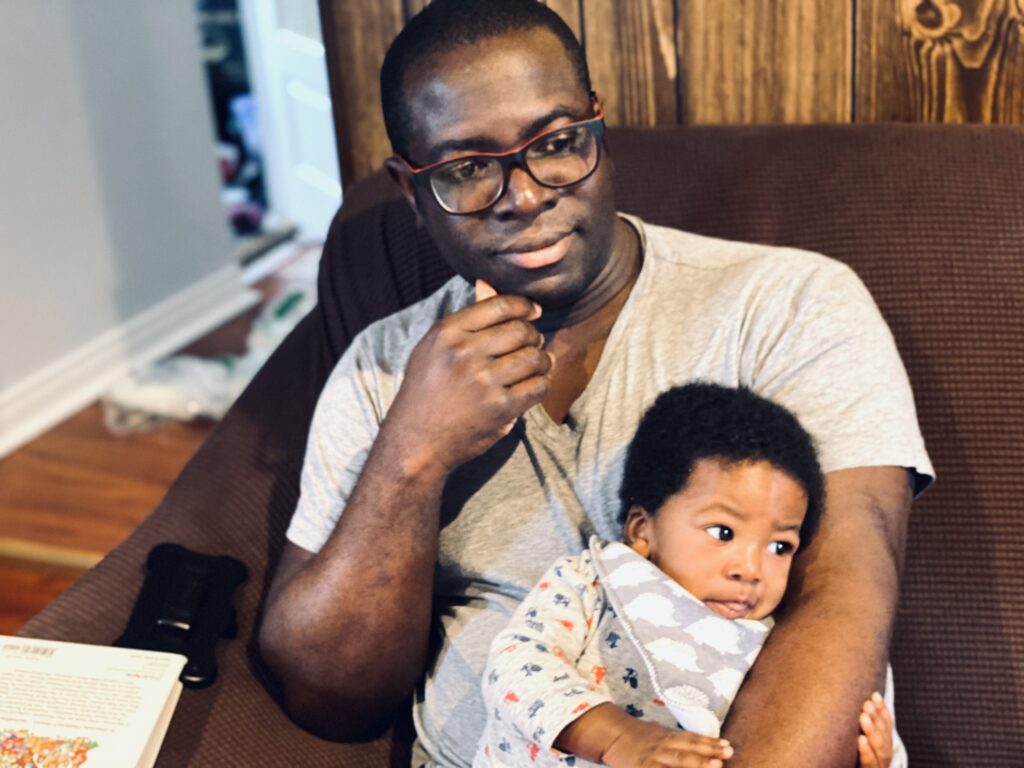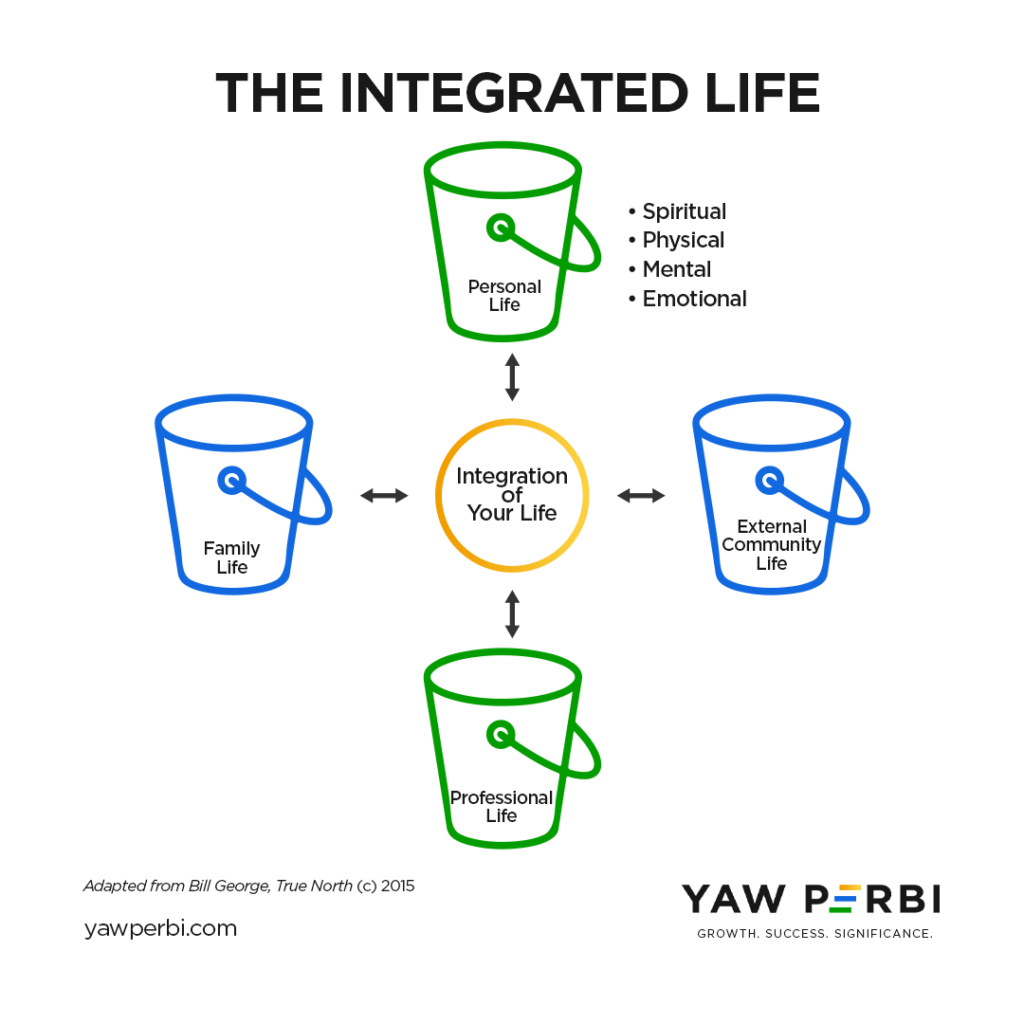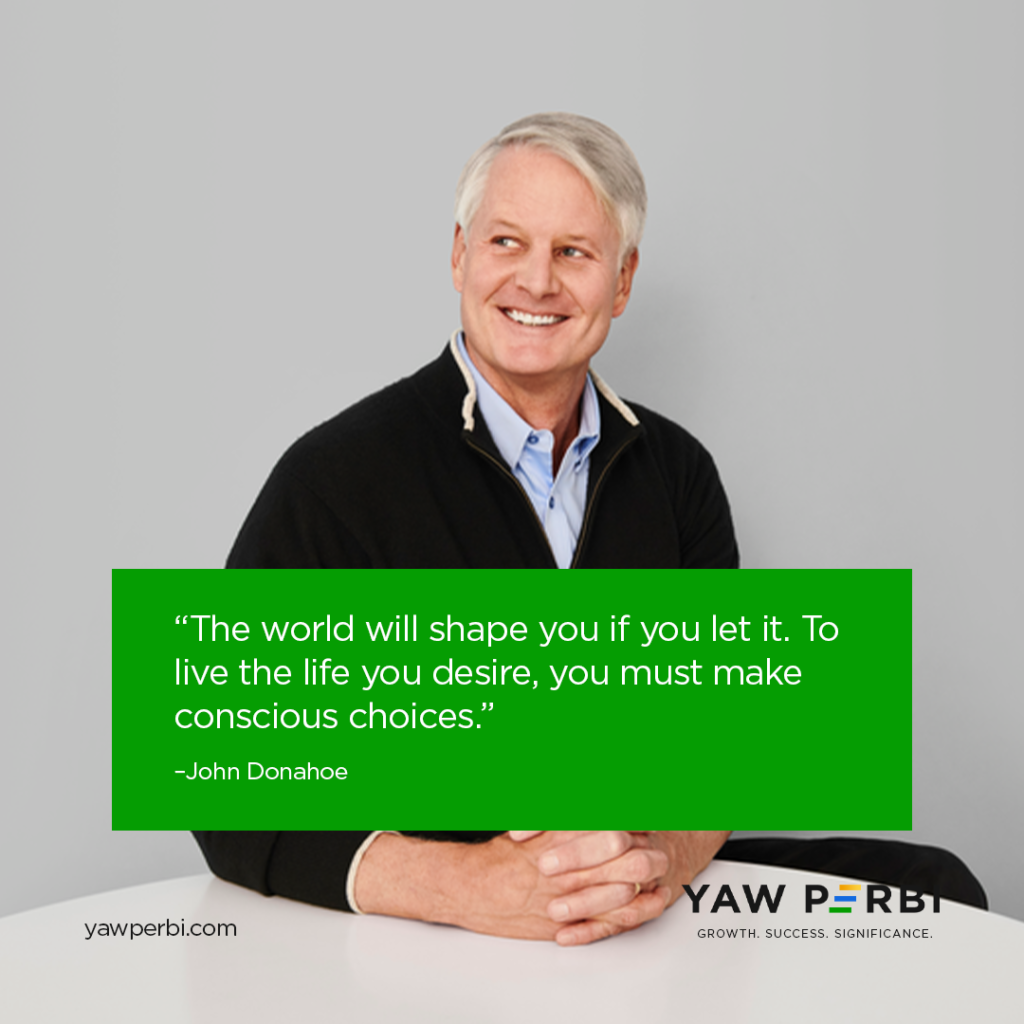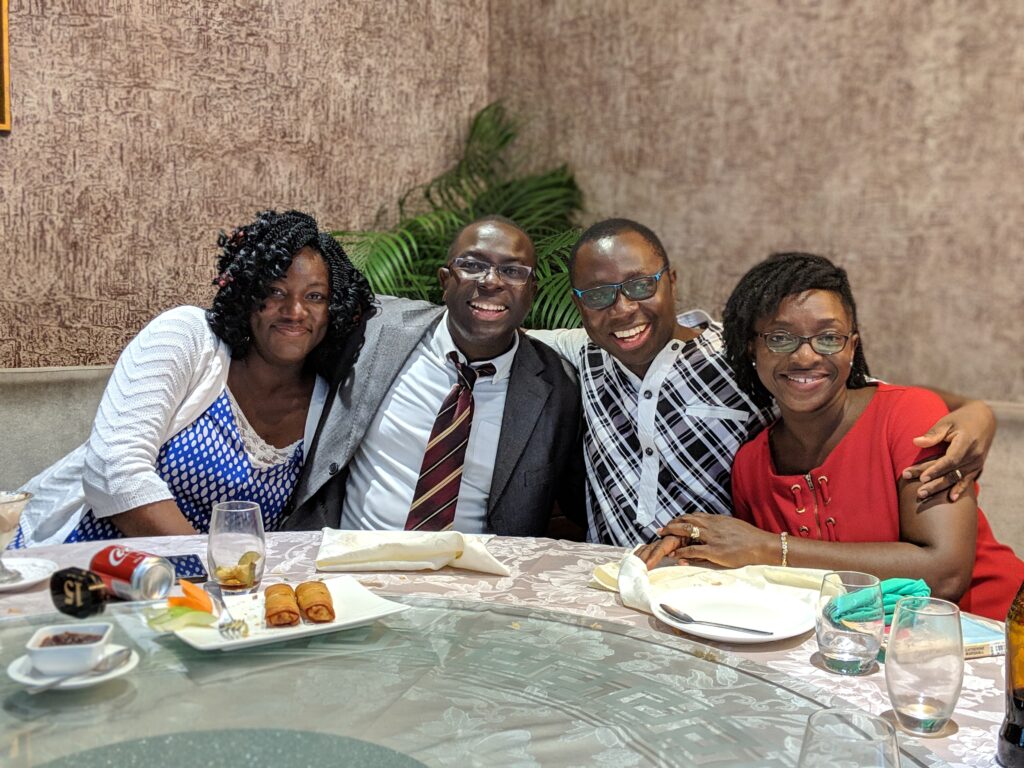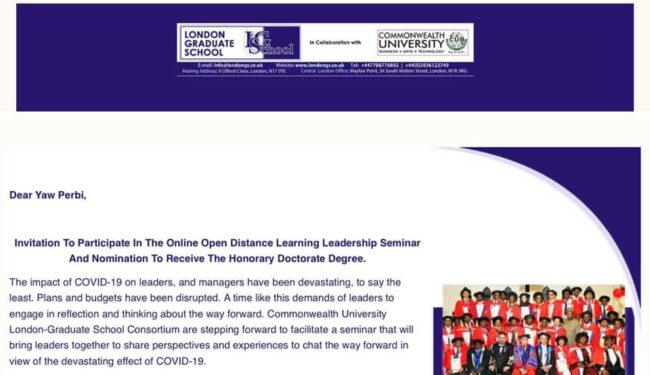
50 Shades of Coaching
Here is a list of about 50 kinds of coaching:
❖ Academic Coaching: Helping One Achieve Academic Excellence
❖ ADD/ADHD Coaching: To Understand the Most Common Learning Disorder – Attention Deficit Disorder / Attention Deficit Hyperactivity Disorder
❖ Alternative Lifestyle Coaching: To Get You Motivated, Strengthen Your Commitment and Re-align Your Goals
❖ Athlete Coaching: To Help Athletes Live a Balanced Life, Both Personally and Professionally
❖ Assessment Coaching: Walking Through Behavioral, Personality and Other Assessments Like the DISC
❖ Bereavement Coaching: Walking Through Painful Events with a Like Mind
❖ Business Coaching: Your Way to Business Success
❖ Career Coaching: Your Way to Fulfilling Your Financial Dreams
❖ Christian Life Coaching: Your Way to Emotional Maturity and Spiritual Fruitfulness
❖ College Entrance Coaching: Helping You Attend the School of your Dreams
❖ Communication Coaching: Opening Up the Link Between People
❖ Conflict Coaching: Working One on One to Achieve Balance
❖ Co-Parenting Coaching: Helping Divorced Parents Create a Positive, Workable Parenting Relationship
❖ Couples Coaching: Improving Communication Between Partners
❖ Creativity Coaching: Creative Struggle is Integral to the Life of the Artist
❖ Divine Purpose Coaching: To Re-Identify and Connect with One’s Centre
❖ Divorce Coaching: Helping People Transition to a New Life
❖ End of Life Coaching: Helping Those Left Behind
❖ Entrepreneur Coaching: For More Than Starting up a New Business
❖ Ethics Coaching: Living with Authenticity
❖ Executive Coaching: Moving the C-Suite On an Up to Take Your Team to the Next Level
❖ Family Coaching: Helping Families Work Through Difficult Issues
❖ Health and Wellness Coaching: Focusing on the Whole Being
❖ Holistic Health Coaching: Finding the Light at the End of the Tunnel and Balancing the Mind, Body and Spirit
❖ Laughter Coaching: To Bring More Lightness and Freedom
❖ Leadership Coaching: Putting You in the Right Direction to Chart the Course for Others
❖ Life Coaching: Your Way to Personal Success
❖ Men’s Empowerment Coaching: Helping Men Succeed with Excellence
❖ Military Transition Coaching: Helping You Adapt to Civilian Life
❖ Motivational Coaching: Helping One Achieve Personal Excellence
❖ Nature Coaching: Helping to Become One with Nature
❖ New Age Coaching: Self-help and New Thought Modalities
❖ Organizational Coaching: Clearing the Way to Clarity and Direction
❖ Parenting Coaching: Helping Parents Communicate and Understand their Children
❖ Pastoral Coaching: Coming Alongside Shepherds of God’s People
❖ Peer Coaching: Coaches Coaching Coaches
❖ Personal Development Coaching: Centers Around the Aspects of One’s Personal life
❖ Personal Finance Coaching: Your Way to Financial Freedom
❖ Physician Coaching: Helping Physicians Find a New Journey
❖ Recovery Coaching: Your Way to Recovering with Success
❖ Relationship Coaching: Building Personal and Professional Relationships
❖ Retirement Coaching: Transitioning to a New Life Stage
❖ Sales Coaching: Your Way to Increased Success and Profitability
❖ Self-Esteem Coaching: Helping People with Feelings of Value and Worth
❖ Singles Coaching: Helping Singles Find Healthy, Loving Relationships
❖ Special Needs Coaching: Helping Disabled Families and Individuals
❖ Spiritual Coaching: Helping People to Connect to the Divine
❖ Stress Management Coaching: Helping People Identify and Reduce Stress
❖ Success Coaching: Your Pathway to Personal and Professional Success
❖ Transitional Coaching: Helping People Through Big Life Changes
❖ Transpersonal Coaching: Finding Your Greatest Potential
❖ Weight Loss Coaching: Discovering New Healthy Lifestyles
❖ Women’s Empowerment Coaching: Encouraging Women to Embrace Their Talents
❖Youth Empowerment Coaching: Encouraging Young People to Discover and Fulfill Their Potential
This list is an adaptation of a list of 52 Life Coaching Niches Working Miracles Everyday by our coaching partner Barbara Wainright. You may go here to download a free copy of the book to discover which coaching niche is right for you!

The Little Cow
The first time I heard the story about the little cow, it was from the lips of a millionaire. Gathered in the conference room of some hotel in mid-town Montrèal, this man who had made his money from the financial services industry was urging us on to let go of our little cows, mainly JOBs (which people in his circle called “Just Over Broke”) and go chasing those dreams that will stretch us, pain us but in the end be most gratifying.
Recently, I decided to search online for the story and finally found it, author unknown. Here goes.
The Little Cow – Unkown Author
A master of Wisdom was traveling through the countryside with his apprentice when they came to a small, disheveled shack on a meagre piece of farmland. “See this poor family,” said the Master, “Go see if they will share with us their food.”
“But we have plenty,” said the apprentice.
The master said, “Do as I say.”
The obedient apprentice went to the home. The good farmer and his wife, surrounded by their seven children, came to the door. Their clothes were dirty and in tatters.
“Fair greetings,” said the apprentice, “My Master and I are sojourners and want for food. I’ve come to see if you have any to share.”
The farmer said, “We have little, but what we have we will share.” He walked away, and then returned with a small piece of cheese and a crust of bread. “I am sorry, but we don’t have much.” The apprentice did not want to take their food but did as he had been instructed. “Thank you. Your sacrifice is great.”
“Life is difficult,” the farmer said, “but we get by. And in spite of our poverty, we do have one great blessing.”
“What blessing is that?” asked the apprentice.
“We have a little cow. She provides us milk and cheese, which we eat or sell in the marketplace. It is not much but she provides enough for us to live on.”
The apprentice went back to his Master with the meagre rations and reported what he had learned about the farmer’s plight. The Master of Wisdom said, “I am pleased to hear of their generosity, but I am greatly sorrowed by their circumstance. Before we leave this place, I have one more task for you.”
“Speak, Master.”
“Return to the shack and bring back their cow.”
The apprentice did not know why, but he knew his Master to be merciful and wise, so he did as he was told. When he returned with the cow, he said to his Master, “I have done as you commanded. Now what is it that you would do with this cow?”
“See yonder cliffs? Take the cow to the highest crest and push her over.”
The apprentice was stunned. “But Master…”
“Do as I say.” The apprentice sorrowfully obeyed. When he had completed his task, the Master and his apprentice went on their way.
Over the next years, the apprentice grew in mercy and wisdom. But every time he thought back on the visit to the poor farmer’s family, he felt a pang of guilt. One day he decided to go back to the farmer and apologize for what he had done. But when he arrived at the farm, the small shack was gone.
Instead there was a large, fenced villa.
“Oh no,” he cried, “The poor family who was here was driven out by my evil deed.” Determined to learn what had become of the family, he went to the villa and pounded on its great door. A servant answered the door.
“I would like to speak to the master of the house,” the apprentice said.
“As you wish,” said the servant. A moment later a smiling, well-dressed man greeted the apprentice.
“How may I serve you?” the wealthy man asked.
“Pardon me, Sir, but could you tell me what has become of the family who once lived on this land but is no more?”
“I do not know what you speak of,” the man replied, “my family has lived on this land for three generations.”
The apprentice looked at him quizzically. “Many years ago I walked through this valley, where I met a farmer and his seven children. But they were very poor and lived in a small shack.”
“Oh,” the man said smiling, “that was my family. But my children have all grown now and have their own estates.”
The apprentice was astonished. “But you are no longer poor. What happened?”
“God works in mysterious ways,” the man said, smiling. “We had this little cow that provided us with the slimmest of necessities, enough to survive but little more. We suffered but expected no more from life. Then, one day, our little cow wandered off and fell over a cliff. We knew that we would be ruined without her, so we did everything we could to survive. Only then did we discover that we had greater power and abilities than we possibly imagined and never would have found as long as we relied on that cow. What a great blessing from Heaven to have lost our little cow.”
COW & COIN CONCLUSION
Everyone of us has a little cow that stands in the way of fulfilling our full potential. So what’s your little cow? Now imagine a little child who remains tight-fisted over a quarter, a 25-cent coin, when you are eager to give them a $100 bill you’re hiding behind you and encouraging them to ‘open up’ and ‘let go’ of the quarter to receive. They aren’t able to receive the $100 because they would rather keep the little that’s surely in hand than open their palm and risk losing the quarter, although they might very well know that what they could gain might be way better.
You probably have heard it said that often the enemy of the best is the good. What is your little coin or little cow. Let it go; kill it!
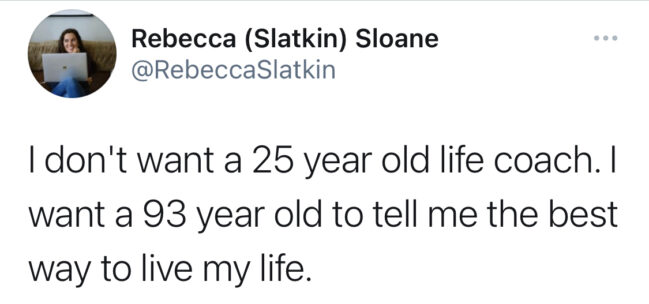
A Most Misunderstood Art: Life Coaching.
This tweet by Rebecca Sloane garnered so many responses last week. And it really ticked me off. It said, “I don’t want a 25 year old life coach. I want a 93 year old to tell me the best way to live my life.” It was sassy and seemed sensible at first sight, on the surface, but I just couldn’t shake it off or let it go scot-free. I’ll tell you why. To be clear, I’m going after the thought; not the person. “Ideas have consequences,” you know.
HUMILITY IS AN ASSET
In the first place, with humility anyone can learn from anyone. Everyone can learn something from anyone. The older can learn from the younger, atheists from people of faith (and vice versa), Christians from Muslims (and vice versa), CEO from new hire etc. This was actually better put by Bill Hybels during one of his Global Leadership Summits I attended: “Armed with enough humility, leaders can learn from anyone.” We can learn from children. Heck, we can even learn from flora and fauna! The greatest teacher that ever lived would place a little child in front of his class and say, “unless you change and become like children…” The good book says, “go and learn from the ant.” With enough humility, everyone can learn something from anyone and anything. Point made.
More substantively, this statement of Rebecca’s is a gross misunderstanding of coaching and as a certified professional coach I would like to set the record straight.
COACHING IS…
Apart from a number of group coaching sessions I run, I am personally dedicated to about a dozen one-on-one coachees, mainly C-level executives ranging from a CEO in agribusiness to deputy CEOs in mining and banking. How does a trained medical doctor get to coach these leaders in such different fields? Meanwhile, some of my coachees are much more advanced in age than me as well. What do I have to offer them then?
Coaching is an inspiring and empowering process that utilizes cogent questions to draw out and clarify thoughts and desires and facilitates a path and framework for their successful implementation for the growth, success and significance of the coachee. As my friend Barbara Wainright, a certified professional coach and trainer of coaches herself, puts it, “Coaching is about empowering your client by asking questions, facilitating strategic planning and monitoring tactical execution.” That is the number one tool of a coach: questions. In fact, with their penchant for asking question upon question, children would probably make much better coaches than adults with a little training and guidance! Yes, that’s how come a 25-year old can coach the writer of the tweet and anyone else twice or thrice their age.
I know I’ve hit a spot whenever a coachee goes, “good question.” The questions a coach asks bring clarity to one’s thoughts and desires, the coaching process inspires coachees to want to be the best versions of themselves they dream of and provides a framework of accountability to make their own word come true. One of my favourite preambles I love to hear from coaching clients is, “I’m beginning to realize…”
Successful life coaching isn’t about the coach–whether they are a 25-year old novice or a 93-year old veteran. It isn’t about what the coach knows, what they’ve accomplished, or even what they are doing in life. It is all about the client.
In fact, as Ms. Wainright reiterates, “coaching is about empowering your clients to decide for themselves what their goals are. It’s about Socratic Questioning and attentive listening. Coaching is about understanding your client’s needs, goals, desires and life purpose. Coaches help their clients to identify and clearly articulate their goals and dreams. Coaches help their clients to remain accountable and help strategize the action steps required to achieve their objectives.”
COACHING ISN’T COUNSELLING OR CONSULTING
I have been wanting to make these distinctions between coaching, counselling and consulting clear for quite a while as even prospective clients sign up for coaching with me expecting a masterclass or therapy session of sorts. Ms. Sloane’s tweet was the last straw that broke the camel’s back. As a student of Dr. Robert J. Clinton’s work at Fuller Seminary, I am of the opinion that coaching, counselling, and consulting are all types of mentoring (see an earlier blog here). Counselling, consulting and coaching have at least one thing in common: they all require great listening skills.
However, counselling is about helping your client by listening and offering advice and sharing coping skills. Consulting is about having all the answers and solutions to help your client with a specific task (hopefully after listening well). There is some form of mentoring (I’m not sure what to call it, perhaps ‘combo-mentoring’?) that combines coaching, counselling and consulting where the mentor empowers the mentee by asking questions, sharing valuable experiences, giving advice for growth and solutions for success. Strictly speaking, that isn’t life coaching in the purest sense of the art.
As may be obvious to you by now, counselling, consulting, and this combo-mentoring all require one to be significantly knowledgeable about the issues being addressed. That would make Rebecca Sloane’s tweet understandable but coaching on the other hand, requires the ability to ask contemplative questions, listen incarnationally, and ask even more profound follow-up questions till the client finds their own answers and makes their own commitments. Consequently, the coach doesn’t need to even know about the client’s field or have experience in the area of life they want to be coached in to help them. With the others, the professional is the driver; with coaching the client is.
DEAR REBECCA…
So dear Rebecca, a life coach doesn’t tell you anything, let alone how best to live your life. There are over 50 coaching niches–from life coaching to executive coaching to career coaching. None of them tell you how to live your best life but they will set the table for you and provide a menu of questions for you to figure out what your life meal should comprise of. For sure, find a 93-year old counsellor, consultant or combo-mentor to tell you how best to do life but if it is a coach you’re really looking for, even a 25-year old novice would do. It is about their questions; not their answers. It’s about you; not them.
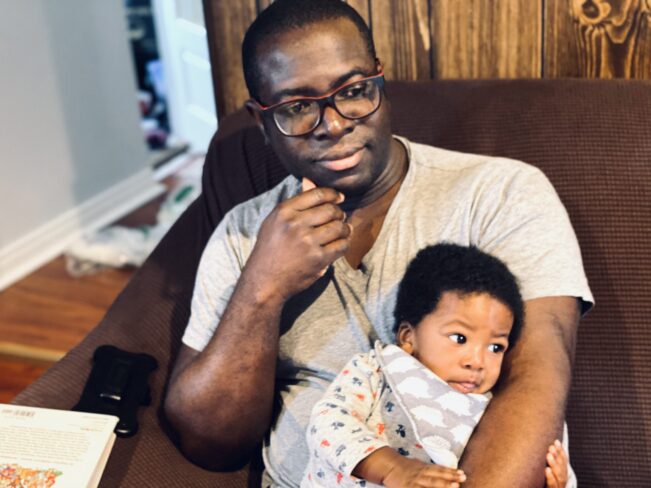
Why I Strive for Work-Life Integration and not Work/Life Balance
Even as a boy, I felt there was something not quite right about hardly knowing my dad’s fellow partners and their families at the ‘big four’ accounting firm he worked at. Of course I knew a couple of the names and faces but that was about it. I felt they could organize some social events and such to intentionally bring their families together but hey, what did I know?
In fact, even now I wouldn’t be able to make out the wife of the senior partner when dad was deputy senior partner. The very kind, burly man’s children currently live barely five hours away from my family in the same country (Canada) but we don’t know each other well enough to even give the other an occasional ring. Oh wait, I got to talk to one of them once, when their dad was seriously ill and had been hospitalized in their town, but that’s been about it.
I think what I longed for, even as a boy, was a bit more of work-life integration, without even knowing that was actually ‘a thing’ or that such a term even existed. A feeble attempt at it has become largely known in the corporate space in recent times as “work/life balance” but what I speak of is more profound than that. How can anyone not see that there is a problem pitting “work” against “life” as if life doesn’t encompass work itself as well as one’s personal life, family and community? And it doesn’t have to be a zero sum game, work or die, inasmuch as there tends to be many tradeoffs.
BUY ONE, GET THREE FREE!
It’s a no brainer that having a bad home situation can adversely affect your professional performance and vice versa. Also, despite how stringent your personal health routines might be, your community relationships are a significant determinant of your mental and physical health, a 75-year study proves. Life is not as separate as we would like (or like to think). Somehow we know this when it comes to how something negative in one aspect of our life can spill over to botch another aspect but what if I told you that being a great dad can make you a better CEO or that the skills you use in your community can be a life-saver in some work project? Yeah, work/life balance isn’t the way to go; work-life integration is. I’ll tell you why.
Author Stewart Friedman concurs: “From years of studying people in many different settings, I have found that the most successful people are those who can harness the passions and powers of the various parts of their lives, bringing them together to achieve what I call “four-way wins — actions that result in life being better in all four domains.” These four domains Stewart speaks of are illustrated in ‘The Integrated Life’ diagram below. He continues, “My research has shown that there are ways for everyone — from the managers of sales teams, to executives in government agencies, to computer engineers, to florists, to coaches — to achieve professional success without always having to sacrifice the things that matter in their personal lives.”
COVID-19 BLESSING IN DISGUISE
One of the gifts of the COVID-19 pandemic has been to not only highlight how important the place we call “home” is, but how it is central to our children’s formal education and our own professional lives. Heck, we’ve even done community, like church, from home! Online. This is perhaps the most physically integrated most people have been in their entire work lives. And those of us who like to keep everything prim and proper with no drama have had a really hard time.
I do a fair bit of social media. I find FaceBook much more integrated in terms of all four aspects of life than say, LinkedIn. Several times, I have seen people literally apologize and “make an excuse” or “make an exception” to post something faith or family-related on LinkedIn. I’ve tried to push those boundaries myself sometimes but it’s a weird, I must say. When I recently shared on LinkedIn that I daily run the daycare at home for the youngest ones of our seven children, I was really honoured to have one of my mentors, Bill George (Harvard business school professor and former CEO of Medtronic), affirm me as follows: “Thank you, Yaw, for being the authentic leader you are.” This must be why: Bill really believes, “For authentic leaders, being true to themselves by being the same person at work that they are at home is a constant test, yet personal fulfillment is their ultimate reward. Doing so will make you a more effective leader in all aspects of life“ (George 2015, 16).
WHERE THE RUBBER HITS THE ROAD
At a just-ended eight-week Family Foundations Mastermind I hosted, the prime place of family was underscored over and over again but by the penultimate session we needed to ‘get real.’ How do we do family well while keeping a demanding job, juggling community roles and trying to stay sane? This is where the rubber hits the road.
As I’ve stated before, integrity comes from the Latin root integritas which means whole, entire, undivided. On the other extreme are those who completely separate their professional life from other aspects of their lives. Then there are those who in the name of work/life balance, hop from one of the four parts to the other, trying to “fulfill all righteousness” and tick every box with as little guilt as possible. What I subscribe to and strive for is integration. Bill is blunt: “To lead an integrated life, you need to bring together the major elements of your personal life and professional life, family and friends so you can be the same person in each environment” (159-160).
We’re striving for the word integrated rather than balance. Subtle difference, apparently, but HUGE. Stewart gets it: “The idea I think to replace work/life balance, which treats these categories as independent, is work/life integration. You’re treating yourself whether you’re at work or at play in basically the same way.”
BIG ROCKS FIRST
All the buckets don’t have the same weight. I believe we ought to carry the more important yet not always more urgent buckets of personal and family first, putting the big rocks in first as Stephen Covey would put it, and all the other things will be added to us as well. Easier said than done, but it must be done nonetheless.
My favourite corporate example of this is Nike CEO John Donahoe (former eBay CEO), when he was a consultant with Bain decades ago with a young family. I was most impressed about how he told his client, ”It is important to me to be doing this. I’m committed to working hard, but I can’t be there before 10am.” This is because he insisted on taking his children to school before heading to the client site. The result? Donahoe was amazed that his clients appreciated the choices he was making. “The client responded positively as he appreciated my commitment and contributions even more” he says. “I didn’t have the courage to think about it that way before. There’s an inclination in business to put on a tough exterior to give the impression that you have everything under control” (162).
Bill George reports that “Donahoe learned that the more he integrated his life and embraced his humanity, the more effective he became as a leader … by showing his team and clients his [priorities and] vulnerabilities, he discovered his teams performed better and his client relationships strengthened.” (162)
This is not to say it’s all easy; but it’s worth it–just like med school or doing an MBA. Hear Donahoe: “The struggle is constant, as the trade-offs and choices don’t get any easier as you get older. My personal and professional lives are not a zero-sum trade-off. I have no doubt today that my children have made me a far more effective leader in the workplace. A strong personal life has made the difference” (160).
To be whole (integritas), we need to integrate our personal , family, community and professional lives, not pit one against the other like ‘work/life balance’ suggests. Real life happens were all four meet and they can enhance each other. Indeed, they should. It isn’t easy. How do I know? I’m still trying. So should you. It’s worth it.
In my next blog, I will share a number of practical examples and ideas of how people have made life-work integration happen, and how my family and I have tried to, also.
References
Friedman, Stewart D. 2014. “What Successful Work and Life Integration Looks Like.” Harvard Business Review. October 07, 2014.
George, Bill. 2015. Discover your True North. Hoboken, NJ: John Wiley & Sons.
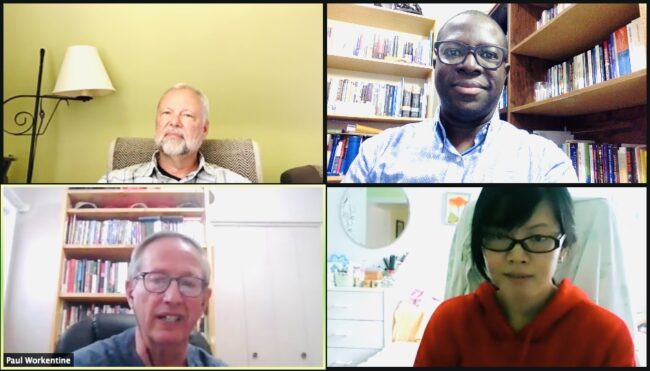
How to Leave the Dance Floor | Two Thoughts on Succession.
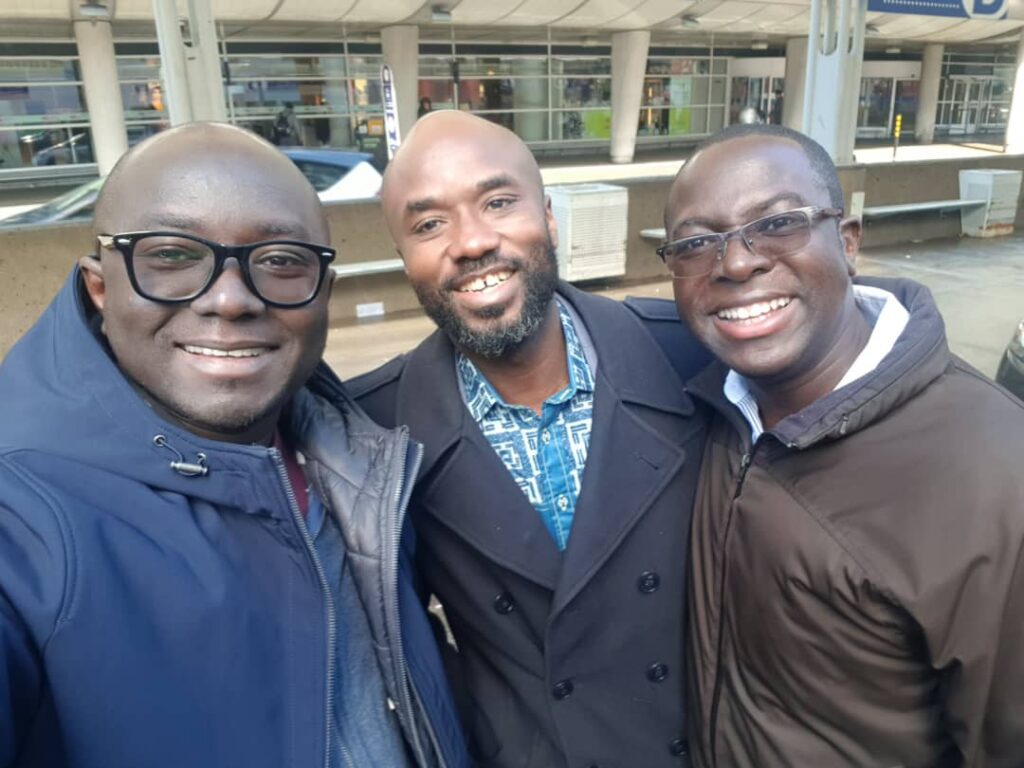
At the Pierre Trudeau international airport in Montreal, Canada, with two leaders, William and Emmanuel, who succeeded me as CEOs of The HuD Group in Ghana and Canada respectively. We had held a strategy meeting just before the COVID-19 pandemic seriously hit the Canada and the U.S..
In my last blog we discussed when to leave the dance floor as an executive leader. Today, let’s talk about how to leave the dance floor. I agree with those who prefer ‘succession management’ to the term ‘succession planning’ because planning, come to think of it, really is only a third of the management cycle which comprises planning, implementation and evaluation.
I have several succession management experiences in my leadership career spanning over two decades. These have been in multiple C-level roles and contexts, even in different countries and continents.
SUCCESSION SUCCESS STORIES
After pioneering The HuD Group in Ghana in 2003 and leading it for five years, I successfully passed it on to the next national CEO and left for Cote d’Ivoire to pioneer the same work of holistic leadership development there while serving with the United Nations peacekeeping operation. The Cote d’Ivoire transition, when it was time to leave after a year, was one of the trickiest. The very week I was to leave, the one person who had hitherto faithfully served alongside me and was the ‘heir apparent’ suddenly and strangely broke my trust in a significant way. The ‘next best’ I eventually handed over to, ended up being truly the best. Timothée led the organization for a decade and has now also successfully passed the baton to an amazing lady, Ann. Timothée is now the CEO of Francophone Africa for the same organization. We have been working together for over a dozen years. We do not only have a mentoring relationship but are really friends, having spent great times together in several African countries as well as in the U.S. and Indonesia. I have done the same kind of succession management in Canada, handing over The HuD Group I pioneered there in 2010 to a very capable young man who at the time was working for Shell in the oil sands of Alberta.
In a different scenario, although I was initially hired to be interim pastor of the English congregation of a Chinese church in Montreal, when it was time to get serious about handing over to a successor after about three years, several people did not want us to go that route. They liked me and had gotten comfortable with the progress we were making in several areas but I knew it was the right thing to do. As a leader, I had figured out that the church needed to find someone who could give their full attention to the work and not my part-time investment, albeit fairly substantial. That too was an interesting succession management process as it involved interviewing candidates from Canada, the US, Taiwan and the Philippines. It’s been about five years since we eventually hired a young trilingual Chinese-Canadian, Rev. Joseph Cherng, and the church has been thriving since he took over over from me. Again, he consults me from time to time and we are good friends, even visiting our home to share fellowship together with our spouses.
As I shared in the previous blog, I have just made my way off the dance floor after an eight-year tenure as president of ISMCanada and still in the midst of succession management even as I write this blog. I like the fact that in their statement to the organization, the board mentioned that I gave them a whole year’s notice of my stepping aside. That is how to do it–give ample time (unless, of course, it is an emergency). A recent meeting at ISMCanada had two former presidents (myself and Paul Workentine, who handed over to me in 2013) and the new president of ISMCanada (Jakob Koch) all in the same Zoom breakout room (picture below). All three of us still have roles in the organization concurrently. A blessed rarity!
Apart from leaving the dance floor when people are still enjoying your dance, there are two other mindsets that have helped me succeed with regards to succession management in the several leadership transitions in my leadership career in multiple roles and contexts First, “leadership success is measured by succession” and then, “always be closing.”
MINDSET #1: LEADERSHIP SUCCESS IS MEASURED BY SUCCESSION
One of the things that has helped me to be largely successful in all the above stories, even amidst challenges, has been a leadership jewel I picked from John Maxwell’s 21 Irrefutable Laws of Leadership about 20 years ago. According to John’s Law of Legacy, a leader’s lasting value is measured by succession. So unlike other leaders, and I’ve seen many such in Africa, who even want their successor to fail so that they look good, I have always viewed by success as a leader by how well my successor does. You don’t want your successor to look bad just so that you look good. That is bad leadership.
In all the above successful succession stories, my pride is in the fact that these subsequent leaders are doing well, even better than I did in me era. If really leadership is about the people we serve and the noble purpose we share, then any true leader would want to measure their success by a successful succession!
MINDSET #2: ALWAYS BE CLOSING
When I was a financial consultant with Investors Group Canada, I had a fascinating Italian gentleman called Carlo in charge of my unit. He was quite the mentor figure, doing some rounds with me and even taking me to his home on the east end of Montreal once. Carlo was a straight-shooter and his large clientele was evidence that he was doing something right. He is the guy who first taught me to ‘motivate and disturb’ in the sales process. But the most important thing he taught me about sales, I find applies to succession management as well. He called it ABC–Always Be Closing. That must’ve been his short version of Stephen Covey’s second habit of successful people: begin with the end in mind.
To Carlo, what was the point of all the prospecting, phone calling, presentation preparation, sales conversations etc. if it all these activities in the sales process don’t end up in a sale? But in order to close the sale in the end, one has to have that mindset and talk and behave as a closer right from the beginning of the conversation–even before the beginning–and throughout the conversation. ABC–Always Be Closing.
When it comes to succession management, I feel the same way. Always Be Closing. Right from taking a position or role, one needs to begin with the end in mind and start succession management. Always Be Closing. What if the day after you become VP or CEO you’re hit by a bus? What happens to your organization? Even barring any such tragedy, the reality is, every leader, no matter how good and gifted, will have to leave one day. No one and nothing lasts forever. From the very day I took on the CEO role at ISMCanada, I identified a possible successor and hinted him. Always be closing.
CONCLUSION
So succession management should be as basic a mindset and requirement as ABC for every would-be-successful leader. Beginning with the end in mind, Always Be Closing. And if one truly believes their leadership success is measured by successful succession, it will make all the difference in how they leave the dance floor. Leadership success is good, but significance because succession was successful, is even better!

Integrity: it’s not that complicated.
One of the most sold yet least bought commodities in the leadersphere is integrity. There’s hardly a set of corporate core values one comes across without it showing up somehow. What’s even more intriguing is how mystical people make it sound and look. In fact, I’ve heard politicians throw it about in a way that’s made me wonder whether even I understood what the heck it is. But hear me good: integrity is not that complicated.
Although there are so many definitions of it, I’ll share with you one that is as simple as primary school math and then show you a simple litmus test of integrity. Integrity comes from the Latin root integritas, which means whole, complete, entire, unbroken. It’s the same word from which we get the word integer. See, I told you it’s as simple as grade school math! What are integers? Positive and negative whole numbers.
Integrity then basically means you’re whole, not divided. The opposite of that would be fractions; not whole. You’re fractionated, broken up.
What’s the litmus test I speak of? Integrity is not that complicated. How can you tell I’ve got it? How do I know you have integrity too? I don’t need a KYC (know your client) form or a testimonial from a referee or even your long list of impressive achievements. Integrity is keeping your word–not letting your word fall to the ground, not breaking your word. Integrity is being what you say you are and doing what you say you’ll do.
BEING WHAT YOU SAY YOU ARE
Let’s consider two guys, Kofi and Yaw. If Kofi says, “I lie, I deceive, I steal.” Kofi has low morality, by that particular society’s general standards of acceptable behaviour in that era. When Yaw says, “I abhor lying, I don’t deceive, I never steal,” he has high morality.
BUT, if Yaw goes on lying, deceiving and stealing then Yaw is not a person of integrity. He doesn’t keep his word. However, if Kofi goes ahead to lie, deceive and steal, although he has low morality he actually is a person of integrity (albeit in a very twisted way) because he keeps his word. He said he will do these things and he does. Integrity is being what you say you are, being what you say you will.
DOING WHAT YOU SAY YOU’LL DO
Again integrity is keeping your word, this time, by doing what you say you’ll do. I still remember the shock of a new friend I made when I showed up at her place exactly when I promised I would. She was brutally honest with me that she wasn’t expecting me to keep my word. I was hurt that he would think so lowly of the human race, more specifically the XY chromosomic Homo sapiens, and even more specifically a Christian gentleman. But you couldn’t blame here–she had experienced too many people promising and failing to deliver all too often.
Integrity is keeping your word. Of course, sometimes we give our word and due to extenuating circumstances we’re not able to keep it (we can’t control everything, especially the elements and emergencies). If you are a person of integrity, however, although you are not able to keep your word you still honour your word by reaching out in advance (preferably in advance), apologizing for not being able to and renegotiating to make things right.
My editing team for the weekly PEP Talks I do expect my videos to get to them by Sunday night each week. I had such a long day last Sunday that I realized there was no way I was going to be able to make a good video to send at the end of the day. To keep my integrity, however, I sent a note to the team saying, “Hey, it’s been a very tiring day and I wouldn’t be able to give this video my best shot. I’ll work on it tomorrow instead and send it to you.” I was unable to keep my longstanding word, but I did well to still honour it. I wish that were always true. Sometimes I’ve failed to keep my word and gone on with life as if I never gave my word in the first place. That is not integrity–not matter how much I claim to have it!
I get amazed how many people give their word with no intention whatsoever to keep it! And then there is the category of people who give their word intending to keep it but when they are unable to don’t see the big deal in still honouring their word–apologizing and redressing it. I’ve had to correct several people I work with to the point that now they not only keep their word, but if for some reason they are not able to, they now honour it by apologizing, letting me know and re-negotiating.
By the way, when we make plans and don’t keep it (even if they don’t involve anybody else), we violate our integrity. Many of us do not take our own word seriously; we don’t take ourselves seriously. I insist on 100% integrity with my coaching clients when they give their word about what they commit to doing in between our sessions.
Inasmuch as I want to keep this article to the personal level, I cannot help but take a swipe at politicians who are notorious for giving their word during political campaigns only to take office and not only fail to keep their word but sometimes even pretend they have no clue what the citizenry and civil society organizations are reminding them about and trying to hold them to account for! There is a joke about how before elections they call us “the masses.” When they win and we make our demands of them we become “them asses!” In my short lifetime, on both sides of the Atlantic, I have met very few politicians worth their salt. Politicians with integrity are almost extinct.
THE BOTTOMLINE
So integrity isn’t this highfalutin, mystical, metaphysical thing. It’s not that complicated. It is as simple as primary school math: integers. What shows you have it or not is as simple as keeping your word. Period. Nothing more, nothing less.
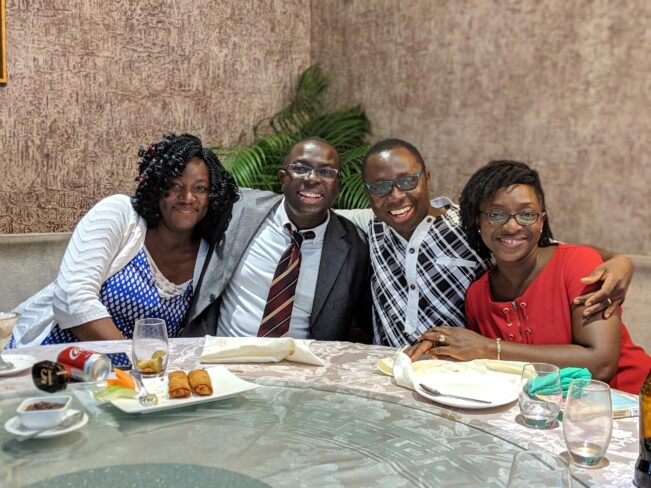
Another Sure Way to Destroy Your Leadership: Zero Accountability.
ONCE UPON A TIME
A number of years ago I was invited to do a keynote for one of the high profile speakers in a certain country. In our private conversations I expressed my deep concern about how an imminent divorce by another significant leader in the country was likely to have a really bad ripple effect on millions of people. In my naiveté I asked, “can’t anyone speak to him?” You know what the answer I got was? “WHO?” “WHO, Yaw, WHO?” In other words, there was no one high enough to hold this ‘big man’ accountable. Apparently, none of the ‘big names’ from around the world I felt might have the gravitas to make this man on a pedestal, rather on a precipice, answerable was worthy.
You see, this otherwise great leader had set himself up to fail by not putting in place relationships and structures to hold himself accountable and to bring him to book. Needless to say, the divorce happened and not only his family and organization but even the nation has not recovered since.
Last week I shared with you A Sure Way to Destroy Your Leadership (and Organization). Well, today I would want to share another sure way to destroy your leadership: not making yourself accountable. My favourite synonym for accountability is answerability. In the sad story I just shared, you could say there was no answer to the question of this big man’s answerability.
TODAY & TOMORROW, PERSONALLY & ORGANIZATIONALLY
Over the last few weeks, there have been significant allegations made against the leadership of a major church denomination originating from Ghana. Everyone I know who I thought was close enough to the denominational head has said to me, “No, I’m not.” The obvious ones, whether by family relation or organizational chart, who are positionally supposed to be in the inner circle are allegedly asking those pushing for a response and/or reform to “PRAY TO GOD TO SPEAK TO THE MAN because he is only accountable to God—no one else can counsel him, let alone question him!” WOW!
Not planning to be accountable is PLANNING TO FAIL—invariably you will, it’s just a matter of time. And principles are not respecter of persons. A survey of about 400 leaders who had all morally failed over a two-year period revealed that none of them had accountable relationships.
So organizationally, do not take lightly the power of a governance board. If you don’t have one, set it up—not a kangaroo board (for the show), a real one. Only last week the accountant of the Canadian charity I’ve been leading as president/CEO for the last eight years called me about a decision I had made to launch a very innovative fund, something that hadn’t been done in the organization’s nearly 40 years of existence. In her opinion this needed board clearance; I did not think that was relevant. Instead of trying to bulldoze my way as CEO and to remove every shadow of doubt, I immediately sent an email to the board chair and entire board presenting the issue to them and requesting a board vote electronically. Within a few hours, it was done. Imagine I had no accountability?
I even heard of a pastor whose church offerings are sent to his house after church. Only God knows the difference between what is taken to his house and how much ends up in the bank, if it ends up at the bank at all!
So organizationally, have a functioning governance board, but personally also, have an accountability partner. In fact, I have a friend who has a personal board which I am privileged to serve on, checking on him each quarter. My best friend of about 30 years is my accountability partner. Franklin was my best man is happens to be my brother-in-law as well. We meet monthly to keep each other accountable—we call it ‘FFF’, First Friday at Five.
The other day, our accountability time fell at a time when I was scheduled to fly out of the São Paulo-Guarulhos International Airport in Brazil. I remember so clearly the exact corner of the huge airport I was seated during that conversation because I recall the shock of my life I experienced, hearing from him. As it turned out, a very prominent member of the music industry had reported to him (Frank is an accomplished musician in addition to his I.T. career) that I was going after a married friend of his in the United Kingdom. I was like “WHAAAT?!” But Frank’s response flabbergasted me even more. He was laughing. Laughing! He laughed and informed me that he emphatically told the person that he must have the wrong guy because if it was really Yaw, he (Frank) would have already been voluntarily told by me! Wow!
Of course the allegation wasn’t true, but more importantly I had such a renewed sense of hope in the art and science of accountability and was energized even more to be 100% vulnerable and transparent with my accountability friend.
SWINDOLL’S ACCOUNTABILITY QUESTIONS
Everyone needs accountability about everything but particularly when it comes to the more common temptations of money, sex, power. In his book, The Body, Chuck Colson (who was imprisoned for his involvement in the Nixon Watergate scandal) lists these seven accountability questions used by Chuck Swindoll:
1. Have you been with a woman [any gender, really!] anywhere this past week that might be seen as compromising?
2. Have any of your financial dealings lacked integrity?
3. Have you exposed yourself to any sexually explicit material?
4. Have you spent adequate time in Bible study and prayer?
5. Have you given priority time to your family?
6. Have you fulfilled the mandates of your calling?
7. Have you just lied to me?
Church Smart Resources have compiled a comprehensive list of a number of accountability questions from different sources, including John Wesley. You may access it here.
“ACCOUNTABILITY” IS A LOVING WORD
I pity people married to unaccountable spouses. I have warned my emerging leaders: Don’t marry people who have no accountable relationships. You’re as good as dead if you do. Friends, we’ve got to have a paradigm shift and consider “accountability” as a loving word. It will save you and me many sorrows and preserve our lives and leadership. It might sound ridiculous to you if I told you I knew someone planning to fail. But I tell you, not having intentional accountability is invariably planning to fail, destroying your life and leadership. And guess what? Invariably, it happens. No matter how ‘big’ you are.
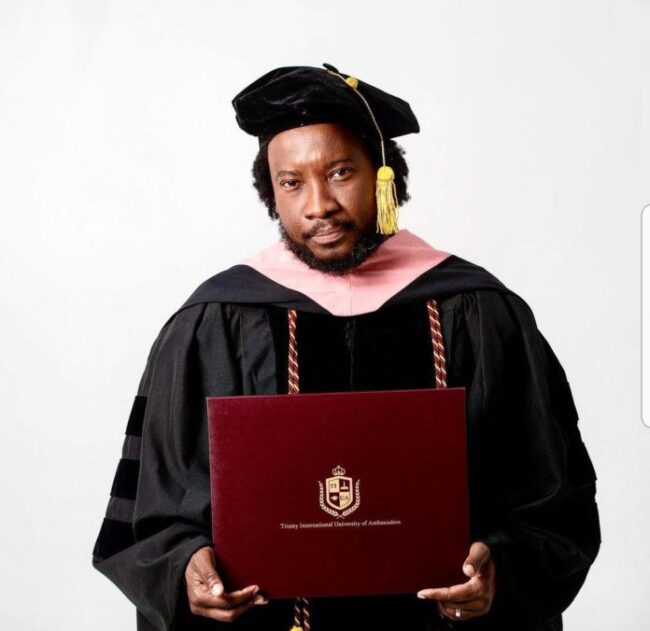
Nothing to Prove, Nothing to Hide, Nothing to Lose
Recently I received an email (partly screenshot above) announcing my nomination to receive an honorary doctorate degree. It is is possible that I would have felt more flattered and been more tempted to go after this fake degree from these fictitious institutions had I not already been a “Dr.” (medical). Coming from a family in which my grandfather was an emeritus professor and where my mother and father-in-law are PhDs in history and economics respectively, these titles don’t exactly faze us. Yet those who offer them know they are toying with very powerful human emotions, motivations and identity issues at the core of our being and have made a good business of it. As my best friend said when I forwarded the said email to him, “this has nothing to do with you; it has everything to do with business.”
Some however, including many Christian leaders, have taken the bait and gotten decorated with very dubious degrees and titles. Recently, there was a huge brouhaha over a popular Ghanaian musician based in London who was alleged to have amassed three degrees, including a PhD, within four months! Perhaps if he had even shut up, none of this would’ve become an issue of investigation and castigation setting social media abuzz but he was flaunting it and ‘praising God’ for the fake feat. The desire to flaunt it itself reveals the very identity and emotional challenges he might have that perhaps led to him to go for those inauthentic accolades in the first place.

Popular gospel singer, Sonnie Badu, has now supposedly earned the title ‘Dr’ after bagging a doctorate in Musicology and being awarded two more degrees.
The above picture of Sonnie, whose giftedness is unquestionable but his academic credentials are, was uploaded by himself on social media touting his feat. I have met Sonnie. He is a fine young man and anointed. But I can also tell you he is far from perfect; just like you and me. Speaking of Sonnie and musicology, incidentally, my grandfather was a celebrated ethnomusicologist. His work earned him many accolades including several honorary doctorates but he never used the title “Dr.” because although he had done enough original research work to deserve ten doctorates he never really formally pursued a PhD per se. Interestingly, he shot straight from ‘mister’ to ‘professor’ and was ’emeritus professor’ for the last three decades or so of his life.
This degree brouhaha touches on at least three issues: identity, purpose and authenticity.
IDENTITY
There was once a programme organized by a friend of mine. The MC got on stage and introduced a certain pastor to come up and offer a prayer. He inadvertently introduced him, with no malice, as Mr. XYZ. XYZ comes up, grabs the mic and makes a correction, “I’m not Mister, I’m Pastor.” That wasn’t all; it gets worse. Later he clears his throat and amends his correction saying something like, “In fact, I’m not Pastor, I am Reverend.” Ahem. Wow! What a shock, what a shame.
But lest I come across as holier than thou, remember I told you that the people offering fake degrees know exactly what they are massaging in us: the ego. I can tell you that as a medical doctor myself there are many times when people address me in speech or in writing as ‘Mr.’ and I have a natural gut reaction to get offended, said in my head something like “do you know who you’re talking to?” and yearned to correct them. There’s a part of me that even justifies it thus: “mehn, but you earned it.” That, my friend, is not the authentic self.
We need not, and indeed should not, root our identity in external things like what we wear, how much we earn, what degrees or title(s) we have acquired. Anything that man can give you, man can take away. Let’s not root our identity in any such thing. And you would think that supposed men and women of God would know better and root their identity in nothing less than Christ himself.
PURPOSE
You may have ‘more degrees than a thermometer’ and still not accomplish your God-given purpose. There are some without degrees at all and yet have made much more impact in the world than those with many letters behind their names. Your purpose in life determines the vehicles and tools you need to use. It’s strange to make the acquisition of vehicles and tools our primary objective when one hasn’t first sat down to evaluate if that is what they need to get done the job they came on earth to accomplish. It’s about dreams, not diplomas and degrees.
Did you read about the recent brouhaha over the apparent insistence of Jill Biden, wife of the current U.S. president, to be called “Dr” ? It’s really been going on for at least a decade now: “Hi, I’m Jill. Jill Biden. But please, call me Dr. Biden.” The December 2020 op-ed by Joseph Epstein in the Wall Street Journal implored Jill Biden to “think about dropping the honorific, which feels fraudulent, even comic.” Personally, I think the essence of what Epstein was trying to say became lost in what became an embroilment in sexism. The real question should be: does being ‘Dr.’ make Jill a better educator (that she’s been for decades) or not? Everything else is secondary; even tertiary.
AUTHENTICITY
This degree saga leaves a lot to be desired when it comes to authentic leadership. It speaks to the core of authenticity. Authentic leaders have:
- nothing to prove–a matter of humility (not try to project self worth)
- nothing to hide–a question of integrity (no playing of games but totally transparent)
- nothing to lose–a matter of simplicity (not strive for social image or popularity).
As you might have noticed, humility, integrity and simplicity as an acronym spell HIS. This is particularly instructive to Christian leaders. Those of us at the Third Lausanne Congress on world Evangelization in Cape Town in 2010 were passionately exhorted by theologian Chris Wright to be God’s saints, Christ’s people, HIS people of humility, integrity and simplicity.
NOT SO WITH YOU
Again, especially for Christian leaders, the primary power base of an authentic (wo)man of God is spiritual power—not positional or personal power. Others may go that route but Jesus was very clear to his followers who would be leaders: “not so with you.” In May 2020, I wrote quite extensively on that here. We need to lead different. This issue just won’t go away until Christians really chose to be H.I.S. people.
CONCLUSION
In light of the recent brouhaha about fake degrees, Friends, BE WARNED. Don’t allow your ego to be stroked and stoked, making your false self acquiesce to receiving fake degrees from fictitious institutions. If you want a degree, go to school and study for one! In any case, one doesn’t necessarily need a degree to succeed in life! Hopefully your going for a diploma or degree would only be because you have observed It will a good vehicle or tool towards your dream. Again, the thing is: You can have ‘more degrees than a thermometer’ and still not fulfill your God-given purpose in life.
I have a mentor who likes to say, “the thing about titles is that if you’re good you don’t need them; if you’re not they won’t help you.” Heaven help us!

Family Foundations No One Lays Yet Everyone Needs
One of the most stupid things I’ve ever done is to travel 10 whole years into marriage before ever seeking formal post-marital counselling. After the several pre-marital sessions lasting many months in 2006, Anyele and I went in the power of that for a decade until we felt we needed further formal, external help. Why on earth did we do that?
Come to think of it, every 5,000 km or so we were changing the oil in our car and getting it serviced yet not so with our marriage. Doesn’t every marriage need regular marriage maintenance? Why wait till we’re sick before we see a doctor when we can at least do annual check-ups? In fact, I would say we came from a culture where seeing a counsellor connoted there was a pathology; and not so much a maintenance thing.
Friends, I’ve had several conversions since August 12, 2006 that have better aligned and further fortified what I thought were already ‘excellent foundations.’ Sometimes there’ve even been foundational cracks I’ve had to fix (and God knows I’m not done). For time to time I’ve come across new information that has caused me to repent, have a change of mind, and realign our foundations to keep this family building strong and lasting.
EXAMPLES OF FAMILY FOUNDATIONS TO REVISIT
Feel free to say “shame on you Yaw” but I had never heard of a family genogram until barely five years ago! How could such an important tool and exercise not have been part of our foundations when we set out a decade-and-a-half ago? And if you’re asking “what the heck is that?”, then trust me, you don’t even know you need one until you eventually discover it. Afterwards you would wonder how in the world your family had been surviving without one. I say ‘surviving’ because you will then notice that what you thought was ‘thriving’ wasn’t quite so.
Then there are basic tools for connecting with spouse and children on a deep emotional level we only received in the last five years. We learnt the 10/10 from the Pellmans and Temperature Reading from the Scazzeros. “Love your wife,” yes I want to. “Respect your husband,” yes she wants to. But how? The Kraemers also gave us tools for this.
And all this is for a good-looking couple who had a pretty solid family heritage, coming from a few generations of good Christian homes, being smart, leaders of our church youth fellowship who had lived virtuously and gotten married as virgins. We even themed our wedding “a celebration of purpose, passion and purity.” Alas! We who ‘had it all’ have realized there are family foundations everyone needs yet almost no one lays. The very marriage mentors who have been blessing us with these paradigms, praxes and practical tools are passionate about their ministry of marriage mentorship today precisely because they themselves didn’t have these when they were our age!
Family is a BIG deal. It is the basic unit of society, just like the cell is for all biological life and the atom is for all matter. Yet the thing about family foundations is this: just like finances, very little about how to make it work well is taught in school about it. If one isn’t fortunate to have a spiritual community that provides quality family life information and formation, you’re in a hard place. There are many divorces that are preventable, if the foundations could be reconfigured. There are some we’ve been able to help save by God’s grace; and others… well… too bad, too late.
THE MOST IMPORTANT PART
Few will argue against the assertion that the most important part of a building, or anything else that is built for that matter, say a marriage, is its foundation. A ton of things have been said about foundations. Gordon B. Hinckley asserts, “You can’t build a great building on a weak foundation. You must have a solid foundation if you’re going to have a strong superstructure.” Adding his voice, David Allan Coe says, “It is not the beauty of a building you should look at; its the construction of the foundation that will stand the test of time.” The greatest teacher of all time, Jesus Christ, classifies life builders into two categories, wise and foolish, purely based on thee foundations they lay: the foolish build on sand, the wise build on rock.
My beloved mentor Peter Scazzero talks about foundations a lot in the Emotionally Healthy Leadership paradigms he teaches. And no wonder, since like the typical New Yorker he is, Pete is ever so familiar with the skycraping towers of Manhattan. This is how he explains the importance of digging deep foundations if we are to build life’s tall towers of significance:
Manhattan consists almost entirely of bare granite, a very hard and strong type of rock. To carry the weight of a 75 or 100 story skyscraper, foundations known as “piles” are used. These are concrete or steel columns hammered into the ground with a massive crane until they penetrate solid rock.
Some pilings go twenty-five stories under the ground. The heavy weight of the skyscraper is then distributed through each of the deep “piles” in the ground below. Together they are capable of supporting the structure’s enormous weight.
If the pilings are drilled in poorly, cracks eventually appear in the structure. Entire buildings may lean. Then they must be torn down or lifted completely so the piles can be reset – a costly and time-consuming process.
FAMILY FOUNDATIONS MASTERMIND
As you might be aware from a previous blog, “a mastermind group (often shortened to just ‘masterminds’) is a peer-to-peer mentoring group used to help members learn together, solve problems, birth new ideas and gain clarity with input and advice from the other group members.” For eight weekly sessions, from April 4 to May 30, I shall be walking along with a dozen leaders who want to re-examine their family foundations and receive new paradigms, praxes and practical tools to finally fix faulty family foundations. Inputs will include several book chapters, videos, articles, practical exercises, discussions and debates. Two special features and benefits will be FREE membership of an online chest of over 20,000 resources and a FREE DISC Personality assessment with a 37-age customized report!
You can be sure that “mastermind groups are great in holding each other accountable for the goals and outcomes each member comes up with themselves” (see here). Outcomes and outputs of this particular Family Foundations Mastermind are as follows:
- Paradigm Shift on the Prime Place of Family
- Ancient Wisdom Applied
- Current Family Systems Theories Tested
- Practical Relationship Tools (for emotional connection, communication, forgiveness)
- Family Genogram
- Behavioural Assessment
- Emotional Needs List & Action Points
- Family Mission Statement
- Hierarchy of Priorities Configuration
- Integrated Life Exploration & Commitment
Register here and let’s go back to basics. Let’s finally fix faulty family foundations that everyone needs to but hardly anyone does.

Work harder on yourself than you do on your job.
Over the last week, somehow this notion of needing to work harder on yourself than you do on your job has come up with two or three different coaching clients. For the CEO of a crucial agro business firm in West Africa, the financial services entrepreneur in Canada and the PhD-wielding academic on the east coast of the United States, the three reasons I’m about to share held true. It is true for you too.
For the record, I work hard and believe in hard work. I also work smart and absolutely promote the idea of brain over brawn anyway. Over a decade ago I came up with the phrase, “brain power pays; muscle power pains.” I subscribe to the Pauline exhortation that “whatever you do, work at it with all your heart, as working for the Lord and not for man.” So by all means, work hard and smart on your job, but work even harder and smarter on yourself.
Here are three reasons why:
1. WHO YOU ARE IS MORE IMPORTANT THAN WHAT YOU DO
No matter how hard or smart you work, the instrument for the doing the do is you. If the input into you doesn’t match or exceed the output, that will soon be your undoing. Let me put it in a way one of my staff in British Columbia said it to me a few years ago: “If your output exceeds your input, then your upkeep will be your downfall.” Classic! Not only will you soon not be effective and efficient when your self input is less than your job output, it is unsustainable and you might end up becoming irrelevant. And sometimes, irrelevant not just in terms of knowledge and skills for a context that has progressed because you’re not healthy or even physically alive anymore–you killed the goose that lays the golden eggs!
Consider these sagacious words of educator Palmer Parker:
“When I give something I do not possess, I give a false and dangerous gift, a gift that looks like love but is, in reality, loveless—a gift given more from my need to prove myself than from the other’s need to be cared for…. One sign that I am violating my own nature in the name of nobility is a condition called burnout. Though usually regarded as the result of trying to give too much, burnout in my experience results from trying to give what I do not possess—the ultimate in giving too little! Burnout is a state of emptiness, to be sure, but it does not result from giving all I have; it merely reveals the nothingness from which I was trying to give in the first place.”
Remember, who we are is more important that what you do, because we do whatever we do out of who we are: our identity, character, values.
2. ONE MEANS A LIVING, THE OTHER MEANS A FORTUNE
Classic motivational speaker of blessed memory, Jim Rohn, poignantly put this in a way like nobody else has: “Learn to work harder on yourself than you do on your job. If you work hard on your job you can make a living, but if you work hard on yourself you’ll make a fortune.” This statement, I believe, is a variation of timely advice Jim himself received from his mentor J. Earl Schoaf. Jim had heard him give the reason for why the job only pays the bills but the latter ends in billions: work harder on yourself than you do on your job; your income is directly related to your philosophy, not the economy; and for things to change, you must change.
From a one-year college drop out living from pay check to pay check as a stock clerk at Sears, this advice catalyzed a five-year mentorship of Rohn by Shoaff, encouraging him to develop himself and pursue his dream of a better life such that by age thirty one, Rohn was a millionaire! It was a really sad day when this motivator of motivators like Anthony Robbins, Less Brown, Brian Tracy and Denis Waitley, passed away in December 2009.
Friend, work harder on yourself–from your paradigms through your attitudes to your skills. It’s the software that you carry and apply to a variety of endeavours, not only your job, that will unlock abundant wealth and well-being.
3. JOBS COME AND GO BUT YOU’LL STILL BE HERE
Sometimes people leave jobs; other times jobs leave people. In the kind of post-pandemic economies we have now, more jobs leave people than people leave jobs. Certain whole industries have been wiped out, for crying out loud! I’ve marvelled at how many pilots have been literally grounded and have had to find some other kind of livelihood. What if all you did was work hard on your job and never grew your other interests, talents and skills or even never networked beyond the ‘boys club’ in your profession?
When many years ago I decided to take the path of the risk of entrepreneurship rather than the ‘security’ of a regular paid job, some people who thought I was crazy later found out they had been crazy to think ‘owning a job’ was better than owning a business when in spite of their qualifications, loyalties and skills their jobs were cut. Former Microsoft COO, Kevin Turner, said it best: “The only job security we have is our individual commitment to personal development.” Your job today may not be there tomorrow–in fact your entire industry might not be there–but you will. Work harder on yourself than you do on your job forwhen tomorrow comes, your preparation will meet opportunity. That’s what they call success.
QUICK PRESCRIPTION
Do the following to ensure you are working hard on yourself for your personal growth and development: set aside a time for YOU, a ME time, everyday. Mine is 5-6am everyday during which I read my personal mission statement, review my goals, read for at least 15 minutes and express my thoughts and feelings in writing.
For all the coachees I mentioned at the beginning of this blog, each was working super hard at their jobs. It is my job to ensure that while they do that, they strive towards working even harder on themselves than they do on their jobs. There’s no great future for anyone without that.

